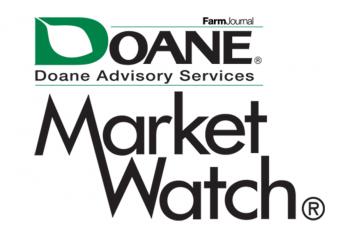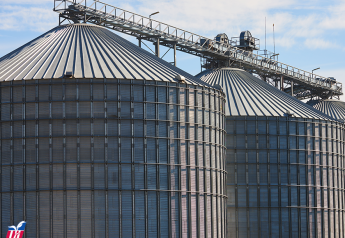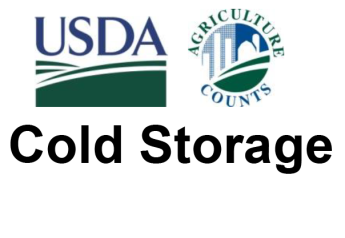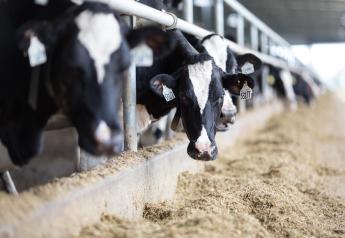Evening Report | March 18, 2024

Check our advice monitor on ProFarmer.com for updates to our marketing plan.
Brazilian export terminal projects 15% jump in ag shipments... Logistics company CLI, which operates one of the largest agricultural commodities export terminals in Brazil, projects it will ship around 15% more grains and sugar in 2024 due to increased demand from commodities traders and mills. According to the company’s director of operations, grain exports are expected to increase 1 MMT this year to 6.5 MMT, while sugar shipments will likely rise more than 1 MMT to 9.5 MMT.
CLI reported a monthly loading record in February at 1.3 MMT, with sugar making up 900,000 MT of that amount. CLI is Brazil’s largest sugar export terminal, shipping around one-third of the country’s total.
Upcoming congressional hearing on China’s threat to U.S. agriculture and land ownership... A congressional hearing scheduled for Wednesday will delve into the perceived threat posed by China to the U.S. agriculture industry, particularly concerning the increasing foreign ownership of American farmland. The House Ag Committee plans to address issues such as intellectual property theft, cyber infrastructure hacking and foreign acquisitions of American farmland. The hearing, titled “The Danger China Poses to American Agriculture,” will explore legislative options to counter these threats and bolster food and national security.
House Ag Chairman Glenn “GT” Thompson (R-Pa.) highlighted concerns over China’s activities, including intellectual property theft, cyber intrusions and land acquisitions. “It’s no secret that China poses significant threats to our way of life, agriculture is no exception. We’ve seen China steal our intellectual property, hack our cyber infrastructure and buy up American farmland,” said Thompson. “We will look to every available legislative vehicle, including the farm bill, to stop China in its tracks and strengthen our food and national security.” The committee aims to utilize available legislative tools, including the farm bill, to address these challenges and prevent China from undermining American interests.
Testimony during the hearing will be provided by various officials, including South Dakota Governor Kristi Noem, who has implemented strict measures against foreign ownership of farmland in her state, as well as representatives from the Select Committee on the Chinese Communist Party.
A report released by the Government Accountability Office (GAO) in January revealed significant growth in foreign investment in U.S. agricultural land, reaching approximately 40 million acres in 2021, according to USDA estimates. The report, requested by Thompson and House Oversight Chair James Comer (R-Ga.), highlighted national security risks associated with foreign ownership, particularly when land is located near military installations.
GAO identified shortcomings in USDA’s sharing of timely data on foreign investments in agricultural land, emphasizing the need for improved transparency and real-time monitoring. While the Committee on Foreign Investment in the United States (CFIUS) is tasked with assessing potential national security risks, the GAO noted that the USDA's publication of relevant data is limited and infrequent.
To address these gaps, USDA has requested funding to establish a real-time data system for monitoring foreign investments in U.S. agricultural land, with the goal of enhancing visibility and facilitating interagency cooperation. Thompson and Comer emphasized the importance of safeguarding American farmland and food security, pledging to collaborate with relevant agencies and committees to address the findings of the GAO report through legislative action.
Of note: USDA faces several challenges in collecting Agriculture Foreign Investment Disclosure Act (AFIDA) data, including reliance on self-reporting, unclear processes, lack of verification and quality reviews, limited tracking capabilities, paper-based submission process, lack of clear instructions and guidance, data entry errors, incomplete and inaccurate data, limited data verification and monitoring, and insufficient funding for online submission process and public database. These challenges contribute to the difficulty in obtaining accurate and timely information on foreign investments in U.S. agricultural land.
Farmer tax liabilities to significantly increase in 2025... Expiration of Trump-era tax breaks in 2025 are set to significantly increase federal tax liabilities for farmers, according to USDA economists. The expiration will affect various aspects including reduced income tax rates, increased standard deduction, capped deduction for state and local taxes and elimination of the personal exemption, resulting in an estimated combined impact of $4.5 billion. The changes are expected to affect 97.6% of family farms, with the largest farms facing the greatest income tax liability increases in dollars.
Another substantial impact would stem from the expiration of the qualified business income deduction, affecting around 45% of farm households.
Additionally, the estate tax exemption is slated to decrease from $11.18 million to $6.98 million, potentially doubling the amount paid in federal estate taxes to $1.2 billion.
The report also discusses the potential effects of reviving and making permanent the child tax credit, which expired in 2021.
Lighthizer advocates tariffs for economic growth and security... Former U.S. Trade Representative (USTR) Robert Lighthizer during the Trump administration argues for the implementation of tariffs, citing economic, geopolitical and moral justifications. In a recent Economist commentary article, he contends that while tariffs have been historically vital for America’s economic growth, they have been unfairly demonized in recent times by free-trade advocates. Lighthizer emphasizes the need for a nuanced discussion regarding tariffs, especially concerning Donald Trump's proposed tariffs on Chinese goods and those manufactured in Mexico by Chinese companies (see previous item).
Lighthizer points out that America’s experiment with nearly eliminating tariffs since the Cold War has failed, resulting in significant trade deficits and foreign ownership of American assets. Lighthizer argues that tariffs can protect domestic industries and national security interests, citing examples of other countries’ successful industrial policies.
Lighthizer criticizes the belief in the “comparative advantage” theory, arguing that other nations’ industrial policies, particularly China’s, have distorted global trade. He highlights the importance of a vibrant manufacturing sector for national security and economic prosperity, challenging the assumption that tariffs always lead to inflation or negative economic outcomes.
Drawing on data from the Trump administration, Lighthizer demonstrates that tariffs can stimulate domestic production and employment without significantly impacting consumer prices. He supports Trump’s proposed tariffs to offset foreign trade distortions and boost American manufacturing, predicting potential increases in household income and job creation.
Lighthizer argues that countries with significant economic intervention, like China, have not experienced inflation but in fact deflation. He dismisses the notion that tariffs would be inflationary, emphasizing the importance of revitalizing manufacturing to create high-paying jobs and restore American greatness.
Lighthizer also underscores the geopolitical threat posed by China, advocating for higher tariffs on Chinese goods for both moral and economic reasons.
Bottom line: Lighthizer asserts that tariffs, when strategically implemented, can address economic imbalances, protect domestic industries and promote the well-being of American workers and communities.
Japan on verge of significant monetary policy changes... The Bank of Japan (BOJ) is reportedly on the verge of making significant changes to its monetary policy, marking the most significant shift in Japanese monetary policy in almost two decades, according to Nikkei Asia. BOJ will hold its monetary policy meeting on Tuesday. Key points from the report include:
- BOJ is considering ending its yield curve control and purchases of risk assets, such as Japanese government bonds, exchange-traded funds and real estate investment trusts. This would mark a departure from the massive monetary easing program BOJ has maintained for years.
- BOJ is likely to abandon its policy of negative interest rates, which it has employed since 2016 to encourage lending. The proposal suggests raising the short-term policy rate target from minus 0.1% to between zero and 0.1%.
- With the aim of achieving sustainable 2% inflation, BOJ intends to guide interest rates higher for the first time in 17 years, reflecting a shift from its previous stance aimed at combating deflation.
- BOJ is set to eliminate yield curve control, a policy introduced in 2016 to manage yields on government bonds. This move indicates a shift away from artificially controlling bond yields and allowing them to move more freely based on market conditions.
Bottom line: Overall, the reported changes would represent a significant shift in BOJ’s approach to monetary policy, reflecting a move toward a more conventional stance after years of unconventional measures aimed at stimulating the economy and combating deflation.






